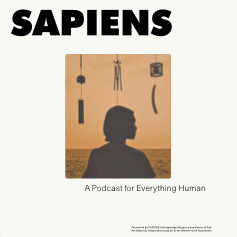Will the Next Margaret Mead Please Stand Up?

Anthropology explores some of the most exciting and relevant issues facing humanity. Anthropologists study human origins, the roots of violence, how we talk, economic injustice, health disparities, family and kinship, constructions of “race,” how cities organize themselves, education systems, climate change, emerging digital worlds, and so much more. But all too often anthropologists conclude our research into these vitally important topics with scholarly papers that are accessible only to a narrow pool of academics.
SAPIENS is part of a movement to make anthropological research, theories, and thinking relevant to the public. From magazines like Anthropology Now and PopAnth, to books like David Graeber’s Debt: The First 5,000 Years and Gillian Tett’s Fool’s Gold, to T.M. Luhrmann’s regular columns in The New York Times, anthropologists are emerging everywhere with new public voices.
To encourage anthropologists to write about their work for a broader audience, Allegra and SAPIENS partnered earlier this year to launch a new competition for popular anthropological writing. An impressive 68 articles were submitted from scholars living and working around the world. We are thrilled to announce the winners.
First prize goes to Amy Starecheski’s “The House Society on Avenue C,” a searing and intimate portrait of the world of squatters in New York City. Second prize is awarded to Hannah E. Marsh for her essay “The Biological Fallacy of America’s Race Problem,” a playful and personal view of the very serious subject of race. Third prize is awarded to Robyn Eversole for “Illogical Objects and What They Tell Us,” which explores physical things that don’t seem to serve a logical purpose but are nonetheless considered necessary.
We congratulate the winners and thank all of those who submitted an entry. Please stay tuned for the publication of the winning pieces on Allegra and SAPIENS!

































